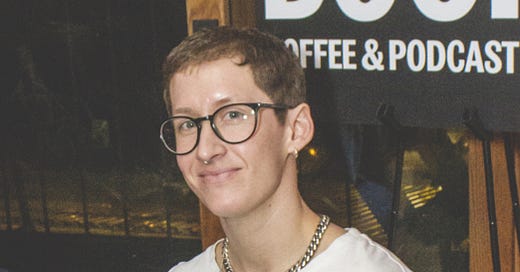dyke drama at the end of the world 💥
an interview with Davey Davis, author of X and the earthquake room
If you are a writer prone to bouts of despair and fantasies of quitting forever, I really recommend becoming friends with another writer who is both unbelievably talented and incredibly kind. For me, that friend is Davey Davis. Davey and I met on Twitter early in the Trump era and since then, they have talked me off the ledge about a short story or some…



